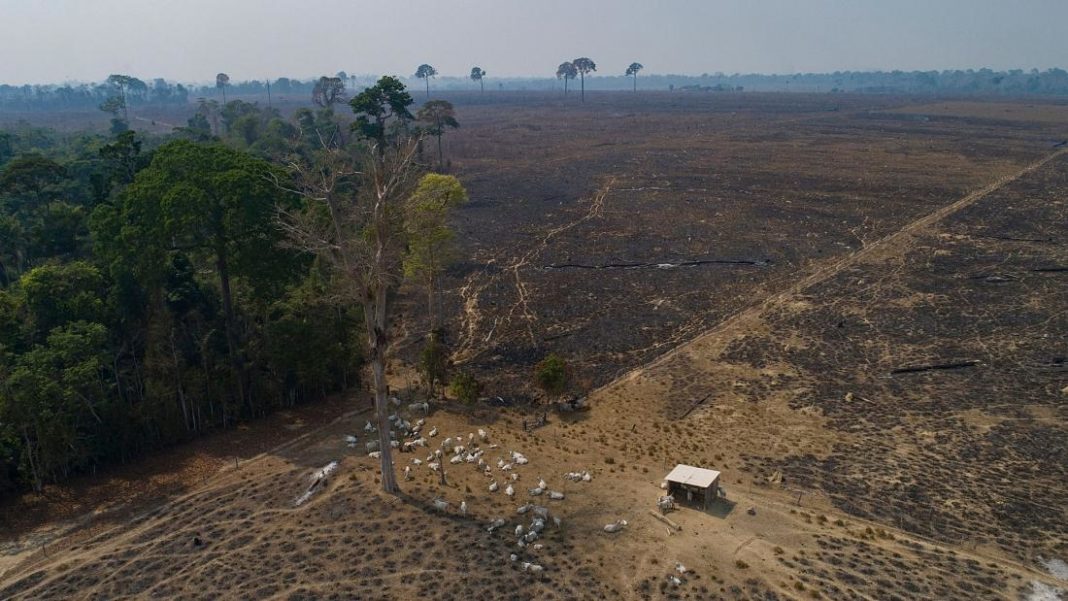The EU is among the world’s largest importers of tropical deforestation and the carbon emissions related to it, second solely to China.
A brand new report from the WWF has discovered that 16 per cent of tropical deforestation from worldwide commerce was linked to EU imports in 2017, the final yr for which knowledge is offered. That’s a complete of 203,000 hectares and 116 million tonnes of CO2 brought on by merchandise and commodities introduced into EU nations.
Eight of the biggest economies, together with Germany, Italy, Spain and Netherlands, had been collectively chargeable for 80 per cent of the EU’s embedded deforestation between 2015 and 2017.
The European Fee is ready to current a brand new proposal for laws to deal with deforestation this spring. WWF says the report emphasises the “pressing want” for sturdy and efficient legal guidelines to deal with the EU’s world environmental footprint.
It says that they need to stop any product that has contributed to the destruction of nature, both ‘legally’ or illegally, from coming into EU markets.
Anke Schulmeister-Oldenhove, one of many report’s lead authors, says that the bloc wants to guide in encouraging nations with ambiguous rules to deal with the underlying drivers of deforestation and human rights violations.
“We would like clear laws that ensures merchandise can’t be positioned available on the market if they’re very excessive threat and people dangers can’t be minimised,” she tells Euronews Dwelling.
“They [companies] ought to no less than be capable to ask their suppliers, are you able to inform me the place this got here from, have you learnt what the provision chain is. If not, we predict that is perhaps a problem they should tackle.”
Ought to we be trying to purchase deforestation-free merchandise?
Among the commodities with the biggest destruction of tropical forests had been soy, palm oil and beef. However, Schulmeister stresses, the burden of decreasing deforestation shouldn’t lie with customers.
“The choice on whether or not I select one thing which is deforestation-free or not, shouldn’t be on our shoulders. However I feel we additionally want to consider what goes past that. One of many challenges is that we’ve a difficulty, I feel, with overconsumption of meat.”
Eradicating the burden from people, nevertheless, doesn’t imply that transparency and consciousness should not necessary.
Nearly 1.2 million individuals joined an EU public session on deforestation in 2020 after a marketing campaign from a gaggle of NGOs, together with WWF. It was the biggest participation for an environmental subject within the historical past of the EU.
Offering the knowledge essential for individuals to grasp what merchandise are linked to the destruction of nature and potential human rights violations can be a part of the answer – even when that hyperlink may not be apparent.
“About 80 per cent, or extra of what the EU imports for soy is to feed livestock,” says Schulmeister.
“So it truly goes to that rooster that makes your breakfast egg, it goes to the pig that makes your breakfast bacon and it goes to the cow that brings your milk or yoghurt.”




